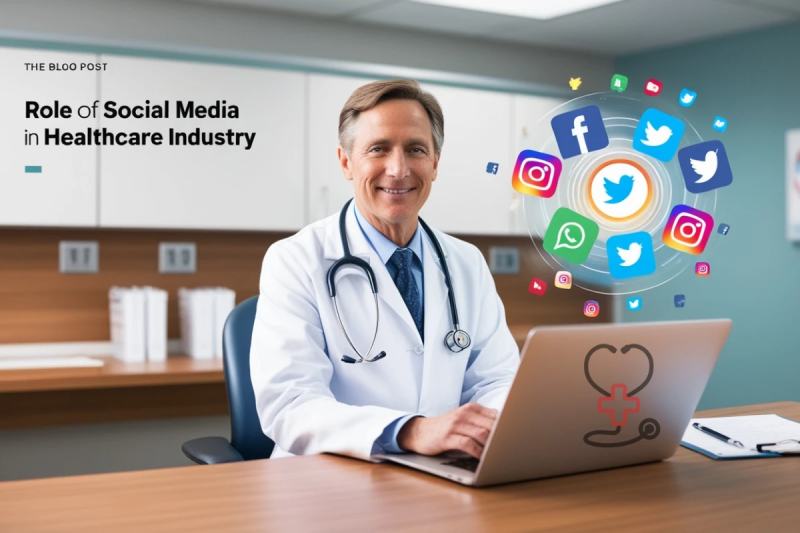
In today’s digital age, social media has become an essential tool for businesses across industries, and the healthcare sector is no exception. Social media platforms have opened new channels for healthcare providers to communicate with patients, share important health information, and build brand presence. However, to harness the full potential of social media, healthcare organizations need to adopt effective strategies for social media optimization (SMO).
1. Social Media as a Communication Tool in Healthcare
Social media is transforming how healthcare professionals communicate with patients and the general public. Platforms like Facebook, Twitter, and Instagram allow healthcare providers to engage directly with their audience, share updates about health trends, promote wellness campaigns, and respond to patient inquiries in real-time.
Through these platforms, healthcare providers can create a two-way dialogue with patients, helping to address their concerns and offer timely health advice. This level of engagement not only fosters trust but also strengthens the relationship between patients and healthcare professionals.
2. Social Media Optimization for Increased Visibility
For healthcare organizations, social media optimization (SMO) is crucial to increase visibility and reach a wider audience. By optimizing social media profiles, using the right keywords, and creating compelling content, healthcare brands can improve their chances of appearing in search results and capturing the attention of potential patients.
SMO techniques such as using hashtags, posting at optimal times, and engaging with followers can significantly boost the effectiveness of a social media strategy. With effective SMO, healthcare providers can ensure that their content reaches the right people at the right time, enhancing patient acquisition and engagement.
3. Educational Outreach and Health Awareness
One of the most significant benefits of social media in healthcare is the ability to educate and raise awareness about critical health topics. Social media platforms provide healthcare organizations with an opportunity to share educational content in various formats, such as articles, infographics, videos, and webinars.
From mental health awareness to promoting preventative care, healthcare organizations can use SMO to target specific demographics and tailor content for maximum impact. By promoting health education through social media, healthcare providers help reduce misinformation and encourage healthier lifestyles across their communities.
4. Building Brand Authority and Trust
Patients today are more likely to research healthcare providers online before making decisions. A well-maintained and optimized social media presence helps build brand authority and fosters patient trust. By sharing informative and reliable health information, responding to patient concerns, and showcasing real patient success stories, healthcare organizations can enhance their reputation.
An effective social media strategy combined with SMO creates an environment of transparency, allowing potential patients to connect with providers before scheduling an appointment. Positive patient interactions and testimonials on social media can influence others and attract more patients.
5. Social Media as a Marketing and Advertising Tool
Social media is also a powerful marketing tool for healthcare providers. Through targeted ads, healthcare organizations can reach specific audiences based on factors like location, age, interests, and even health needs. By investing in social media advertising and optimizing content for search engines, healthcare brands can increase their visibility and grow their patient base.
For example, advertising a new service or health screening event on social media can attract more attention and lead to higher attendance or sign-ups. SMO ensures that these campaigns are effective, reaching the intended audience while providing measurable results.
6. Addressing Challenges and Ensuring Ethical Use
While social media offers numerous benefits for healthcare, it also presents some challenges. Healthcare providers must be mindful of privacy concerns, ensuring they adhere to regulations like HIPAA to protect patient information. Furthermore, the spread of misinformation is a common problem on social media, making it essential for healthcare organizations to share only verified and accurate content.
By focusing on SMO, healthcare organizations can not only enhance their social media strategy but also maintain ethical standards, ensuring that the content shared is beneficial and trustworthy.
Conclusion: The Future of Healthcare and Social Media Optimization
The role of social media in healthcare is rapidly growing, and with the right strategies in place, healthcare providers can leverage it to improve patient care, engagement, and brand recognition. Social media optimization plays a vital role in maximizing the impact of social media campaigns, ensuring that healthcare organizations can reach and interact with the right audience.
To learn more about how social media is changing healthcare and how to optimize your social media efforts, read the full article here.







